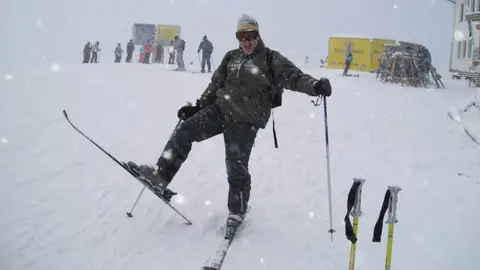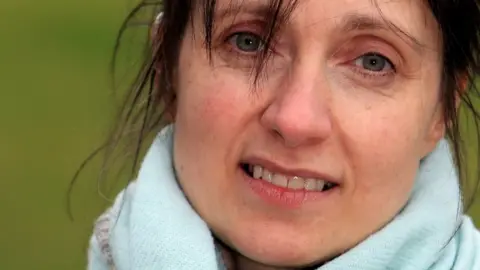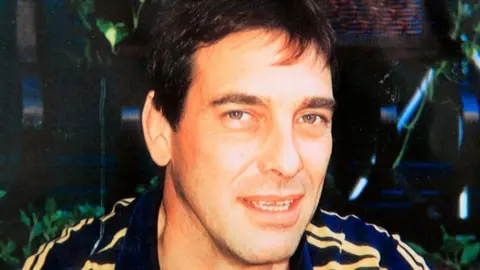Terminally ill man Noel Conway in right-to-die fight
The High Court has begun hearing the legal challenge of a terminally ill UK man who wants the right to die.
Noel Conway, who is 67 and has motor neurone disease, wants a doctor to be allowed to prescribe a lethal dose when his health deteriorates further.
He said he wanted to say goodbye to loved ones "at the right time, not to be in a zombie-like condition suffering both physically and psychologically".
Any doctor who helped him to die would face up to 14 years in prison.
Mr Conway was too weak to attend the court in person.
His lawyer, Richard Gordon QC, told the High Court in London that Mr Conway faced a stark choice either to seek to bring about his own death now whilst still physically able to do so, or await death with no control over how and when it comes.
Mr Gordon said the change to the law that Mr Conway wanted would apply only to adults who are terminally ill with less than six months to live and who have a settled wish to die.
Mr Conway, of Shrewsbury, told the BBC: "I will be quadriplegic. I could be virtually catatonic and conceivably be in a locked-in syndrome - that to me would be a living hell. That prospect is one I cannot accept."
Mr Conway, a retired college lecturer, was once fit and active but motor neurone disease is gradually destroying all strength in his muscles.
He cannot walk and increasingly relies on a ventilator to help him breathe. As his disease progresses, he fears becoming entombed in his body.
 NOEL CONWAY
NOEL CONWAYMr Conway is being supported by the campaign group Dignity in Dying, but the issue polarises opinion.
Baroness Jane Campbell - a disability rights campaigner - says changing the law would send all the wrong signals.
The last major challenge to the law was turned down by the Supreme Court three years ago.
It ruled that while judges could interpret the law it was up to Parliament to decide whether to change it.
In 2015 MPs rejected proposals to allow assisted dying in England and Wales, in their first vote on the issue in almost 20 years.
Supporters of the current legislation say it exists to protect the weak and vulnerable from being exploited or coerced.
The case is expected to take up to four days.

Right to die laws
Assisted suicide - helping or encouraging another person to kill themselves - is illegal under English law.
Under the terms of the Suicide Act (1961) for England and Wales, it is punishable by up to 14 year's imprisonment. In Scotland, helping someone take their own life could lead to prosecution.
There have been several unsuccessful attempts to change the law, as well as some high-profile cases that have challenged it.
2001: Diane Pretty, who had motor neurone disease, fought a long, and unsuccessfully, legal battle to win the right for her to end her life. She took her case to the European Court of Human Rights, arguing that her husband should be given immunity from prosecution should he help her to die. She lost and died at a hospice near her home in 2002.
 Getty Images
Getty Images2009: Debbie Purdy, who had multiple sclerosis, won a landmark ruling in 2009 when the courts agreed that it was a breach of her human rights not to know whether her husband would be prosecuted if he accompanied her to a Swiss clinic where she could end her life. That prompted Keir Starmer - the then Director of Public Prosecutions for England and Wales - to publish guidelines setting out what was taken into consideration when weighing up a prosecution. Debbie died in a hospice in England in 2014.
 Nicklinson family
Nicklinson family2012: Two men suffering from locked-in syndrome lost their legal fight to be helped to die. Tony Nicklinson and a man known only as Martin - both left paralysed after a stroke - had argued that doctors should be allowed to end their lives without punishment. Martin argued that the DPP policy on encouraging or assisted suicide was not clear enough for people such as carers to know how they could provide assistance without the risk of being prosecuted. Tony Nicklinson died in August 2012 after refusing food.
2016: The family of deceased locked-in syndrome sufferer Tony Nicklinson and paralysed road accident victim Paul Lamb lose their right-to-die challenges at the European Court of Human rights. They campaigned that disabled people should have the right to be helped to die with dignity.
